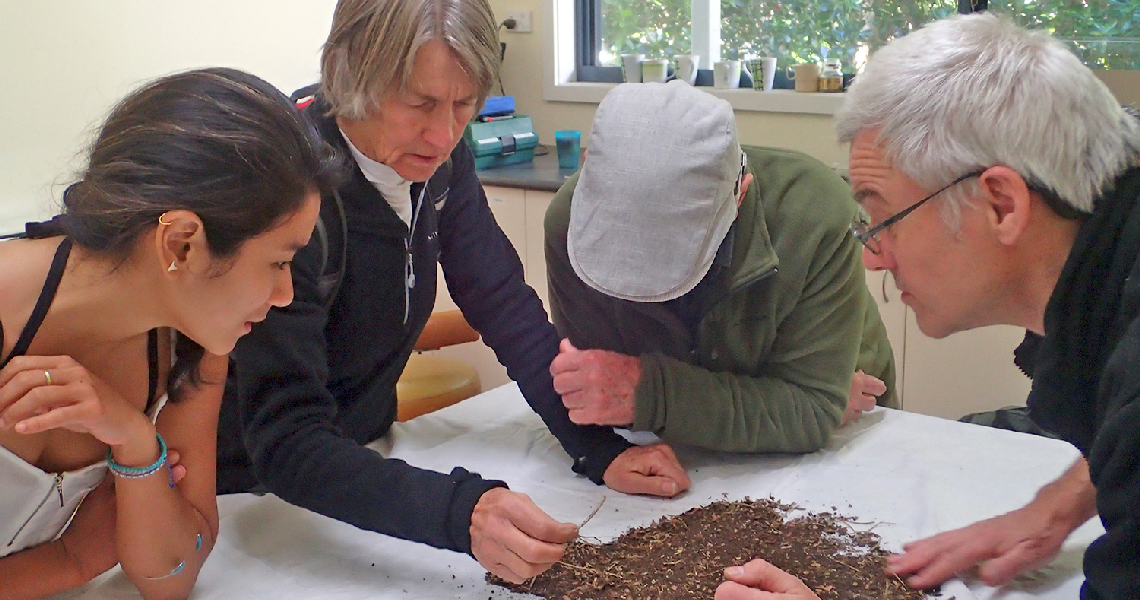
Citizen Science
“The Lord Howe Island Museum has been holding Citizen Science programs for many years.”
Bird Watching
Since 2001 the Museum has run a program to enlist visiting bird watchers to record unusual visitor bird sightings.
A form is available at the museum and any sightings can be lodged there. The data have been used in the report:
The Birds of the Lord Howe Island Group: A review of the records.
Mc Callan I, Curtis B, Hutton I, & Cooper R.
Australian Field Ornithology, vol 21 supplement 2004.
Data reported since then will be used in the update being prepared.
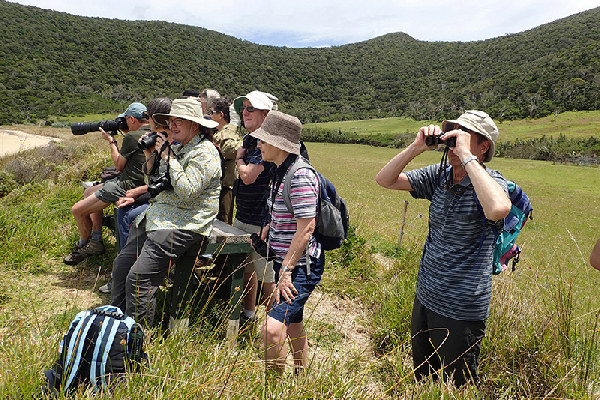
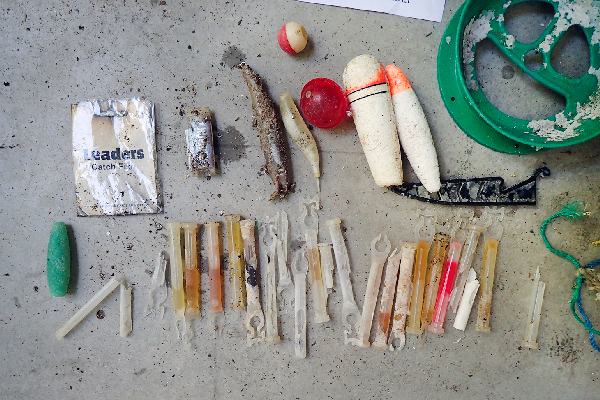
Beach Plastic
From 2012 the Museum has been the workshop space for programs monitoring beach plastic.
Volunteers help collect plastic from island beaches and sort it into categories and upload the data onto the national Tangaroa Blue database on beach plastic.
From 2011 volunteer Citizen Science projects also monitored micro-plastics from the island’s beaches.
Weed removal
The Museum, together with the Friends of Lord Howe Island, coordinated a volunteer Sea Spurge weed removal program in 2018. Sea spurge is a plant introduced into Australia in the 1930s and arrived on the shores of Lord Howe island in the early 2000s.
Funding is not available for paid workers to remove this beach weed, so volunteers provide the only removal process at the moment.

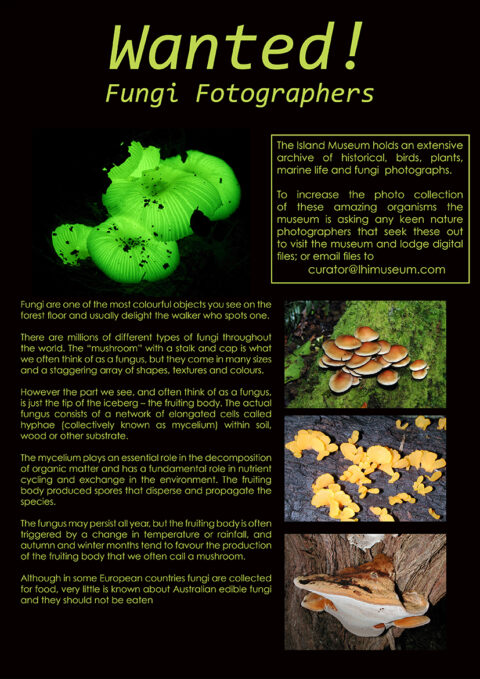
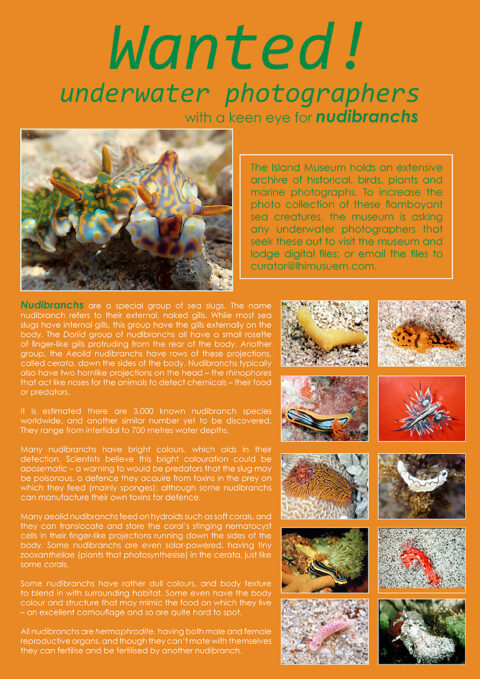
Photographs for identification of
Fungi and Nudibranchs (sea-slugs)
In 2018 the Museum initiated a program for visitors to the island to submit photographs of Nudibranchs and Fungi they see during their stay. These photographs will add to knowledge about species on the island.
In 2018 the Lord Howe Island Museum and Southern Cross University ran the first Sea Slug Census for Lord Howe Island. This resulted in 21 new sea slug records for the island, taking the total to 240 species.
The census was repeated in 2019 and 2020, and will be an annual event to document possible changes in species composition with climate change and warming oceans.
Seabird Rescue
In 2018 the Museum hosted the first Seabird Rescue course for interested locals to train on methods to first respond to injured or beach-washed seabirds.
This course was run by Rochelle Ferris from Australian Seabird Rescue, in Ballina.
A very useful resource is provided by the Department of Primary Industries:
First Responders Guide for Seabird Emergencies
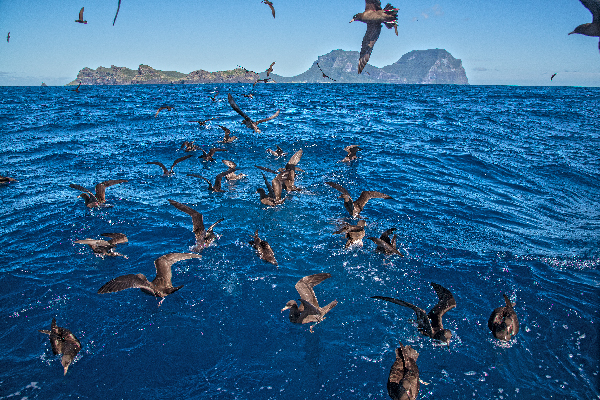
In conjunction with the LHI Board and LHI Marine Parks Authority
In 2018 the Museum, with the Lord Howe Island Board and the Lord Howe Island Marine Parks Authority ran a number of Citizen Science programs such as pre-rodent eradication palm surveys, algae identification workshops and beetle surveys.
The volunteer tourists and locals that participated have added to our knowledge of the science of the island.
See Technical Report Australian Museum Online No 26 p 1 – 16 2019 by Australian Museum.
Citizen Science and the Art of Discovery: New Records of Large Coleoptera from Lord Howe Island. Chris Reid and Ian Hutton
You may also be interested in…
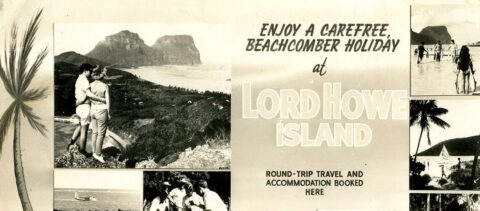
Tourism on Lord Howe Island
Tourism brochures on display at the museum reflect the evolving transportation, accommodation, and experiences on Lord Howe Island over time.
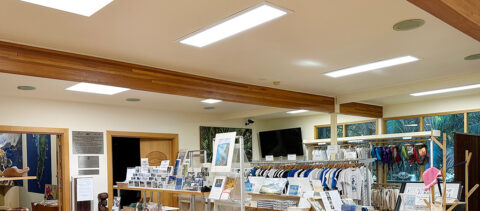
Sponsorship enables LED lights to be installed
Twent-five years after the building was constructed, new LED lights have been installed in all the museum rooms and exhibition areas.

The shipwreck of the SS Ovalau
Recently, the great-grandson of Captain Todd, master of the SS Ovalau shipwrecked in 1903, visited Lord Howe Island and related the story of his ancestor.

2024 Sea Slug Census
The seventh annual Sea Slug census was held on Lord Howe Island during February and March.
